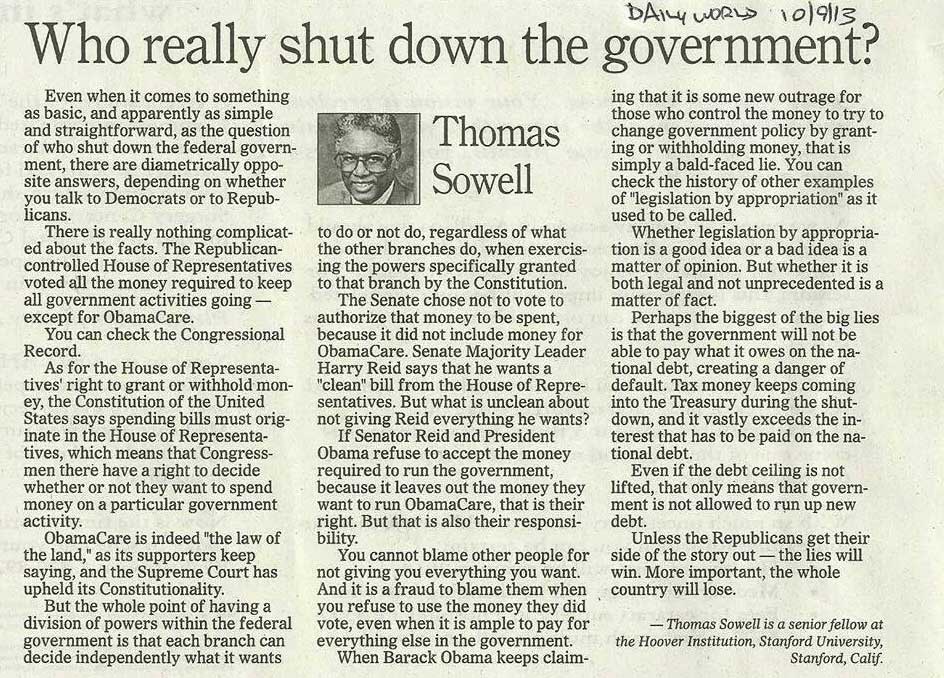Get up to speed on economic cycles, both short term and long, their relationship to productivity and some balance prescriptions for the American economy. Thanks to Ray Dalio of Bridgewater Associates.…
Monthly Archives: October 2013
Are You Pro Life Or Not?
I’m somewhat taken aback by the elephant in the room in America’s healthcare debate. On one hand we hear from the libertarian position that healthcare choices are purely a personal responsibility and there’s no place for the government interference. Some of the more shrill voices equate universal healthcare to slavery. On the other hand we have the descendants of the moral majority taking the high ground in protecting the unborn from death by abortion, and demanding a strong government role in the pro-life cause.
Ironically, both causes are often championed by the same people. The Evangelical community rails against abortion, yet at the same time promotes the gross inequities of American healthcare. Go figure?
This bizarre juxtaposition begins to hint at the shape of our invisible elephant. On the surface of things, American morality assigns each life an infinite value, whether it’s the life of a fetus, the life of a loved one, or perhaps even one’s own life. No price is too much to pay to preserve human life (red blooded American life, that is.) When your child or parent is dying, no stone must remain unturned, no cost is too much for your insurance company to pay, no cost is too much for the government to pay, and ultimately no cost is too much for a moral American to pay. Life is precious, and this is a good thing.
American libertarianism, an evolution of the frontier ethic of self reliance, is one of the core values in our society, and has enabled us to conquer a vast and wild continent. But there’s also a sinister side to libertarianism, the materialistic side which obsesses on what’s “mine.” It posits that people with material wealth possess it because of their own hard work and efforts, and that those who do not labor successfully are, by definition, slackers. Any attempt to “redistribute” accumulated wealth to the slackers is inherently un-American (aka Socialism, Marxism, etc…) In short, supporting the common good is a personal choice, not something that flows from the elected government.
So we have a faction that vehemently insists on the supreme value of human life and we have another faction that prefers to hold fast to 100% of their material possessions, and specifically that the value of their lives as a group is demonstrably (in terms of health outcomes) greater than the value of the tens of millions of …
Does The Blame Game Matter?
Yes, if the media’s obsession with the congressional blame game is what counts. However, delegating blame is not a solution to the fundamental problems of equity in health care, a functioning government, and the sensible choice of operating within a budget vs. arbitrary cuts. Sequestration, shutdown, and threatened default are very much hardball politics, and it is no surprise that the opposing party responds in kind, especially as the end game becomes increasingly clear; that the right wing will be left holding the short end of the political stick.
The assertion that we can pay our debts without increasing the debt ceiling is mathematically feasible, but our interest obligations equal about 40% of the budget’s discretionary spending, or alternatively it is equivalent to approximately 1/3 of our Social Security obligations. The author fails to suggest which of these, and which categories within, he proposes to cut in order to continue servicing our interest obligations on the national debt. Sounds awfully like the economics analog to the neocon chicken hawks. Perhaps he’d have the cojones to put our money where his mouth is.
It is ironic that the author is on the payroll of the Hoover Institute, founded by the President who’s similar austerity policies greatly amplified the effects of the Great Depression. One can only hope that his next editorial elaborates on best practices in constructing Hoovervilles.
It’s not hyperbole to suggest that Hoovervilles would be on the horizon if we were to either cut Social Security by 1/3 or slash discretionary spending by 40%. How much does Sowell propose to cut from spending to continue paying interest? Find $245 billion a year that the Hooverites feel comfortable cutting and that won’t have dreadful consequences for millions of Americans. Hard choices, eh?…


